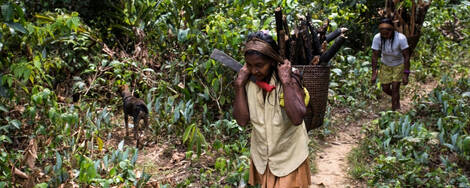
FAO
The Globally Important Agricultural Heritage Systems (GIAHS) Secretariat is pleased to share the newly issued Connecting Practice Report issued by the International Council on Monuments and Sites (ICOMOS) and the International Union for Conservation of Nature (IUCN).As part of this study, two World Heritage & Globally Important Agricultural Heritage Systems located in China and United Arab Emirates were included to explore, learn about, and create new methods of recognition and support for the...

Indigenous peoples and afro-descendants' knowledge, innovations and resilience capacities are essential for the transformation to a more sustainable and climate-friendly world and should be included in the policy-making processes, agreed the High-Level Seminar convened today by the Food and Agriculture Organization of the United Nations (FAO), the governments of Costa Rica, Spain and the Vatican.
Indigenous peoples are major contributors to positive change, yet these valuable contributions are seldom reflected in...

©FAO/GIAHS Huzhou Mulberry-dyke and Fish Pond System
The Ministry of Agriculture and Rural Affairs of the People's Republic of China, in collaboration with FAO’s Globally Important Agricultural Heritage Systems Secretariat, will hold the 7th High-Level online Training course on Globally Important Agricultural Heritage Systems from 8th to 16th of September 2021.
The training aims to raise awareness and share experiences about the GIAHS concept and its potential for sustainable rural development. Some 16 GIAHS and non-GIAHS countries will participate in the training,...



